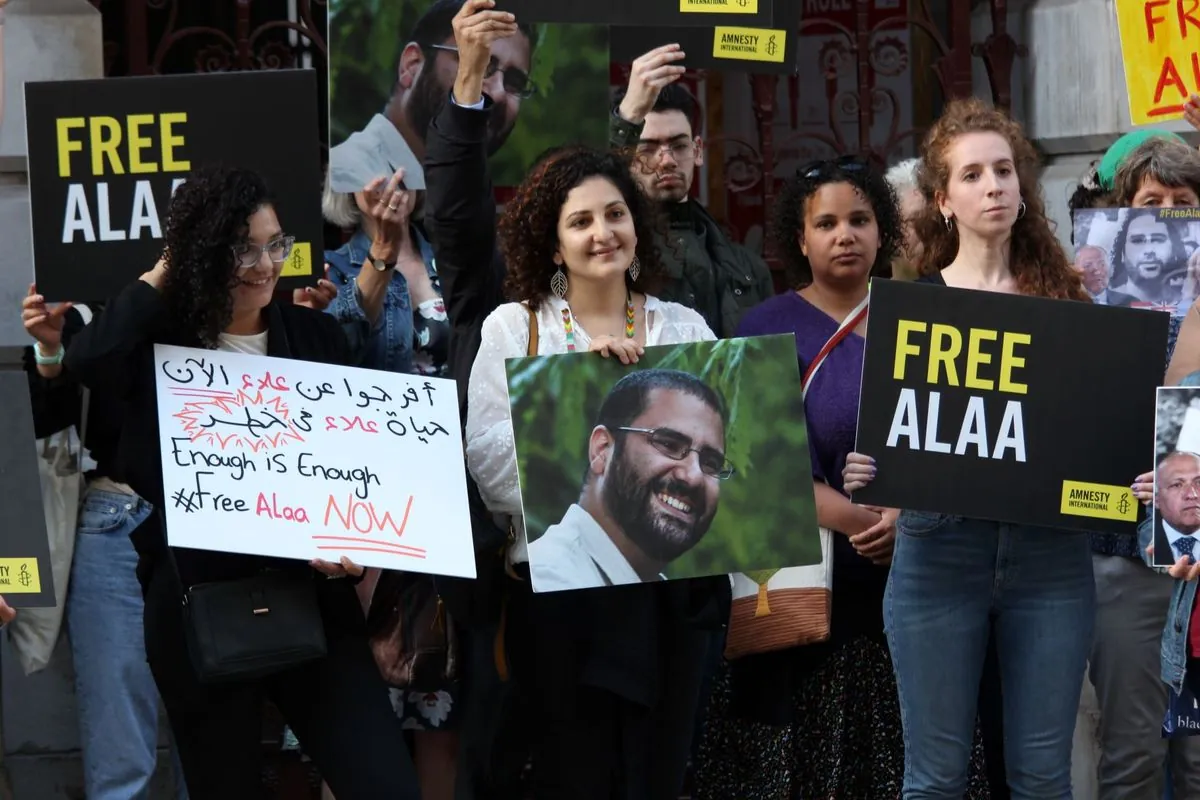Egyptian Activist's Release in Limbo: Civil Society Demands Action
Prominent Egyptian-British activist Alaa Abd el-Fattah faces extended detention despite completing five-year sentence. Civil society groups call for his immediate release, citing legal violations.

Civil society organizations are demanding the release of Alaa Abd el-Fattah, Egypt's most prominent activist, as his anticipated freedom remains uncertain. The Egyptian-British software developer and blogger, who rose to prominence during the 2011 Arab Spring uprising, has been behind bars almost continuously since 2014.
Abd el-Fattah was expected to be freed on September 29, 2024, marking five years since his 2019 detention. However, his legal representative has indicated that authorities do not plan to include his pretrial detention period in the sentence calculation, potentially extending his imprisonment until 2027.
A coalition of 59 Egyptian and international civil society groups has issued a joint statement asserting that failing to release Abd el-Fattah on the expected date would violate Egypt's code of criminal procedure. This case has drawn attention to Egypt's use of "fake news" laws and pretrial detention practices, which have been criticized by human rights organizations.

Laila Soueif, Abd el-Fattah's mother, shared her son's anticipation of release during recent prison visits. She stated, "He has been instructing me to stop bringing books to empty the prison cell." This optimism reflects the family's approach to dealing with the uncertainty surrounding his detention.
Abd el-Fattah's case is emblematic of the broader crackdown on dissent in Egypt. Since 2014, tens of thousands of individuals from various political backgrounds have reportedly been imprisoned. The activist's family has a history of activism in Egypt, and his struggle has become a symbol of resistance against authoritarianism.
Egyptian President Abdel Fattah al-Sisi, who assumed power in 2014, has defended the government's actions as necessary for maintaining security and stability. The administration claims to be taking steps to safeguard citizens' rights, but international pressure continues to mount for improvements in Egypt's human rights record.
In 2022, Abd el-Fattah's case gained global attention when he staged a hunger strike coinciding with Egypt's hosting of the COP27 climate summit in Sharm El Sheikh. The protest, which lasted over 200 days, nearly cost him his life and sparked diplomatic discussions between Egypt and the United Kingdom.
Abd el-Fattah's writings have been published in various international media outlets, and his imprisonment has been a subject of concern for the United Nations, which has repeatedly called for his release. In recognition of his efforts, he was awarded the Sakharov Prize for Freedom of Thought in 2022.
As the expected release date approaches, the international community watches closely, hoping for a resolution that aligns with Egypt's legal obligations and respects human rights. The outcome of Abd el-Fattah's case may have significant implications for Egypt's stance on freedom of expression and its treatment of political dissidents.
"As per our tradition, we act as if the right things will happen, and when they don't happen, we protest."


































